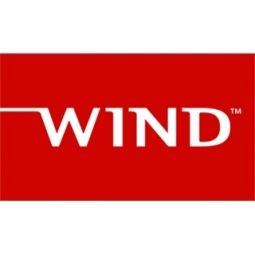Case Studies.
Add Case Study
Our Case Study database tracks 22,657 case studies in the global enterprise technology ecosystem.
Filters allow you to explore case studies quickly and efficiently.
Download Excel
Filters
-
(4)
- (2)
- (1)
- (1)
- View all
-
(3)
- (1)
- (1)
- (1)
-
(2)
- (1)
- (1)
-
(1)
- (1)
-
(1)
- (1)
- View all 5 Technologies
- (4)
- (3)
- (2)
- (2)
- (1)
- View all 6 Industries
- (5)
- (2)
- (1)
- (1)
- (1)
- (1)
- (1)
- (1)
- View all 10 Use Cases
- (3)
- (1)
- (8)
Selected Filters

|
Monday Motorbikes Manufactures 100% electric bikes
Urban commute is a pain: most trips are short and existing options just don't cut it. Cars are expensive / hard to park / stuck in traffic Buses are slow / unreliable / stuck in traffic Motorcycles are heavy / require a special license Bicycles are exhausting / range-limited / slow
|
|
|

|
General Dynamics Uses Wind River Simics to Meet NASA Challenge
In designing and building Fermi, the General Dynamics C4 Systems business unit was faced with a challenge: it needed to provide an environment that could support rigorous testing by multiple Fermi subsystem groups before the spacecraft hardware was available.
|
|
|

|
Mitsubishi Electric's Edge Computing Solution Powered by Wind River VxWorks
Mitsubishi Electric Corporation, a global leader in factory automation (FA) applications, identified edge computing as a critical component of the Industrial Internet of Things (IIoT). The company aimed to enhance device and data security, reduce data traffic to the cloud, and enable faster response to network or device issues. In 2018, Mitsubishi Electric launched its first line of industrial hardware products designed for edge computing, the MELIPC Series. The primary development goals for MELIPC were to support the type of edge computing promoted by Mitsubishi Electric and to introduce advanced vision technology for device control. The flagship computer of the MELIPC line, the MI5000, was designed to combine real-time equipment control with high-speed data collection, processing, diagnosis, and feedback in a single machine. However, the development team needed a real-time control platform that could seamlessly integrate real-time control with proven analytic and diagnostic applications.
|
|
|

|
NASA Meets Satellite Project Testing And Verification Goals
Rising development and maintenance costs comprise the key business challenge of testing and verification for NASA IV&V. Because of their complexity and stringent safety requirements, most NASA projects take many years to come to fruition.
|
|
|

|
Wind River and Parkeon: Making the Smart City a Reality
Parkeon, a global leader in urban mobility technology, had a vision to transform their devices into a new channel for a wide range of city services, creating a developer ecosystem or an 'app store' for meters. The company aimed to create multi-service kiosks that are fully integrated into the Smart City ecosystem, allowing partners to build and deliver additional services through their devices. However, a significant challenge was connecting and integrating these new terminals with the company’s back-office business systems. Parkeon had been using its own network for device connectivity, but with the trend towards the Internet of Things, they realized they needed a more robust connectivity solution than they could build themselves. They needed a solution that could manage deployed meters and integrate the connectivity part of the solution.
|
|
|

|
Continental's Vehicle Systems Development Accelerated by Wind River Compiler
Automotive supplier Continental was faced with the challenge of saving time, reducing costs, and standardizing the development process across its globally dispersed development sites. The company also had to meet the requirements of the functional safety standard ISO 26262. This necessitated a global effort to standardize the development process during every phase and at every geographic site, using common processes and tools. The challenge was not only to streamline and standardize the development process but also to ensure compliance with safety standards across all its development sites.
|
|
|

|
Wind River's IoT Solution Powers Toshiba's Next-Gen Retail System
Toshiba was faced with the challenge of building the next generation of its TCx™ Sky retail optimized operating system. The new system needed to provide stability, security, and performance for today’s widely distributed Point of Sale (POS) systems and also serve as a foundation for emerging IoT innovations such as biometrics and anonymous facial recognition. With TCx Sky powering over a million checkout lines and running a streamlined embedded Linux kernel suitable for retail applications, Toshiba needed a technology partner to help it keep up with the constant evolution and security monitoring associated with embedded Linux deployments. The challenge was further compounded by Toshiba's diverse customer base, which necessitated the constant release of new products to keep up with the latest silicon and security features.
|
|
|

|
AgustaWestland's Safety-Critical Helicopter Touch Screen Unit Development with Wind River
AgustaWestland, a leading helicopter manufacturer, was faced with the challenge of developing a new safety-critical avionics display for a military helicopter upgrade program. The military helicopter had previously used avionics display control units within the cockpit and cabin of the aircraft. However, the new project aimed to enable the implementation of additional functionality to meet new operational requirements. The challenge was to adopt an innovative approach that would not only meet the current needs but also allow for future upgrades using a standards-based approach. The traditional turnkey black-box approach used by traditional suppliers was not suitable for this project due to its lack of flexibility and adaptability to changing requirements.
|
|




